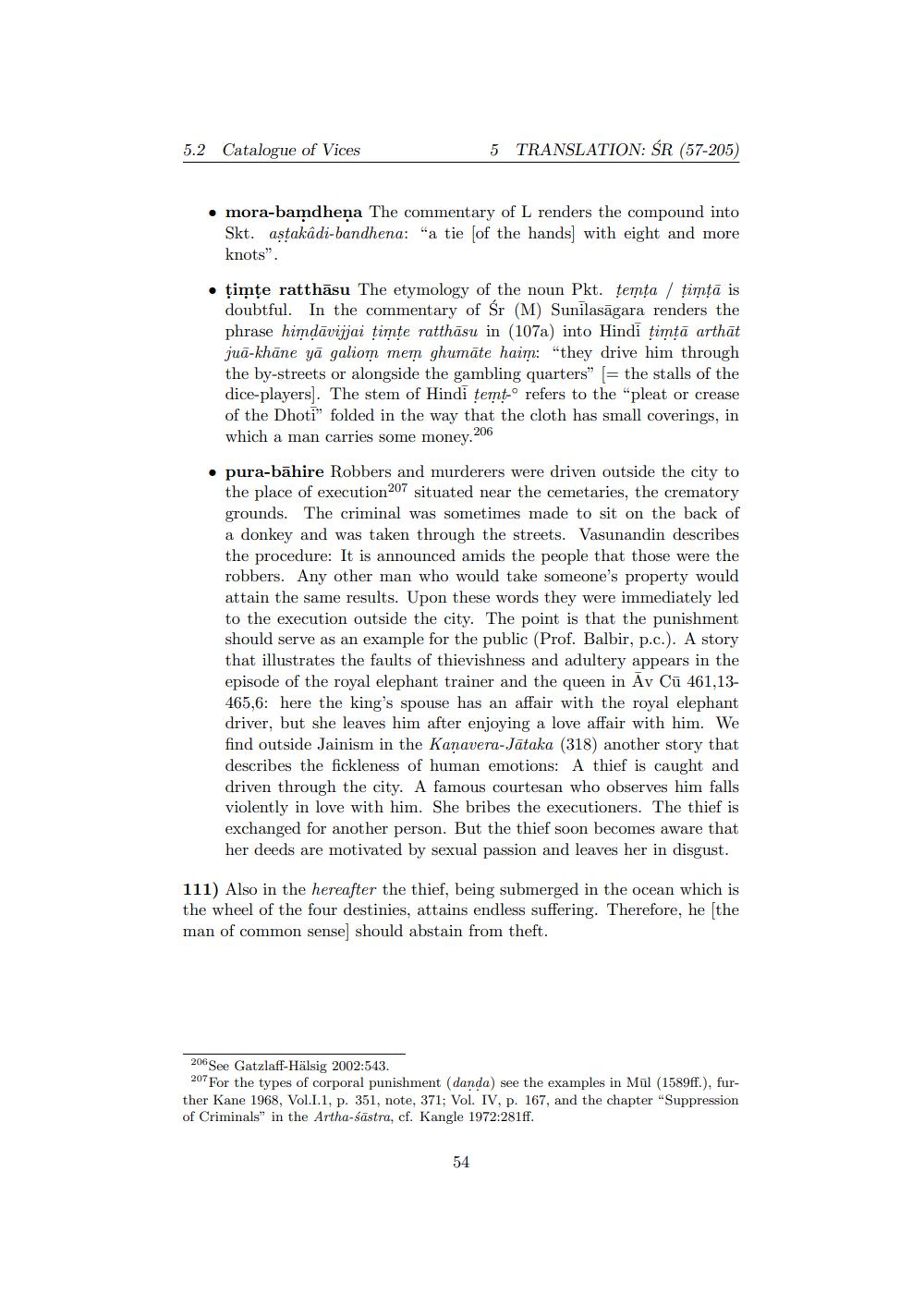________________
5.2 Catalogue of Vices
5 TRANSLATION: ŚR (57-205)
• mora-bamdhena The commentary of L renders the compound into Skt. aṣṭakâdi-bandhena: "a tie [of the hands] with eight and more knots".
⚫ timţe ratthāsu The etymology of the noun Pkt. temța / timtā is doubtful. In the commentary of Śr (M) Sunilasagara renders the phrase himdavijai timte ratthasu in (107a) into Hindi timță arthat jua-khane ya galiom mem ghumate haim: "they drive him through the by-streets or alongside the gambling quarters" [= the stalls of the dice-players]. The stem of Hindi temt refers to the "pleat or crease of the Dhoti" folded in the way that the cloth has small coverings, in which a man carries some money.2
206
⚫ pura-bahire Robbers and murderers were driven outside the city to the place of execution207 situated near the cemetaries, the crematory grounds. The criminal was sometimes made to sit on the back of a donkey and was taken through the streets. Vasunandin describes the procedure: It is announced amids the people that those were the robbers. Any other man who would take someone's property would attain the same results. Upon these words they were immediately led to the execution outside the city. The point is that the punishment should serve as an example for the public (Prof. Balbir, p.c.). A story that illustrates the faults of thievishness and adultery appears in the episode of the royal elephant trainer and the queen in Av Cu 461,13465,6: here the king's spouse has an affair with the royal elephant driver, but she leaves him after enjoying a love affair with him. We find outside Jainism in the Kanavera-Jātaka (318) another story that describes the fickleness of human emotions: A thief is caught and driven through the city. A famous courtesan who observes him falls violently in love with him. She bribes the executioners. The thief is exchanged for another person. But the thief soon becomes aware that her deeds are motivated by sexual passion and leaves her in disgust.
111) Also in the hereafter the thief, being submerged in the ocean which is the wheel of the four destinies, attains endless suffering. Therefore, he [the man of common sense] should abstain from theft.
206 See Gatzlaff-Hälsig 2002:543.
207 For the types of corporal punishment (danda) see the examples in Mul (1589ff.), further Kane 1968, Vol.I.1, p. 351, note, 371; Vol. IV, p. 167, and the chapter "Suppression of Criminals" in the Artha-sastra, cf. Kangle 1972:281ff.
54




